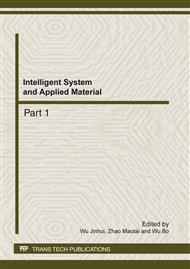p.1186
p.1191
p.1197
p.1202
p.1207
p.1212
p.1217
p.1222
p.1227
Predictive Control Based on Fuzzy Expert PID Tuning Control
Abstract:
In decade years, several simple methods for the automatic tuning of PID controllers have been proposed. There have been different approaches to the problem of deriving a PID-like adaptive controller. All of these can be classified into two broad categories: model-based; or expert systems. In this paper a new expert adaptive controller is proposed in which the underlying control law is a PID structure. The design is based on the fuzzy logic and the generalized predictive control theory. The proposed controller can be applied to a large class of systems which is model uncertainty or strong non-linearity. Simulation results have also been illustrated. It shows that the proposed expert PID-like controller performed well than generally used PID.
Info:
Periodical:
Pages:
1207-1211
Citation:
Online since:
February 2012
Authors:
Keywords:
Price:
Сopyright:
© 2012 Trans Tech Publications Ltd. All Rights Reserved
Share:
Citation:


